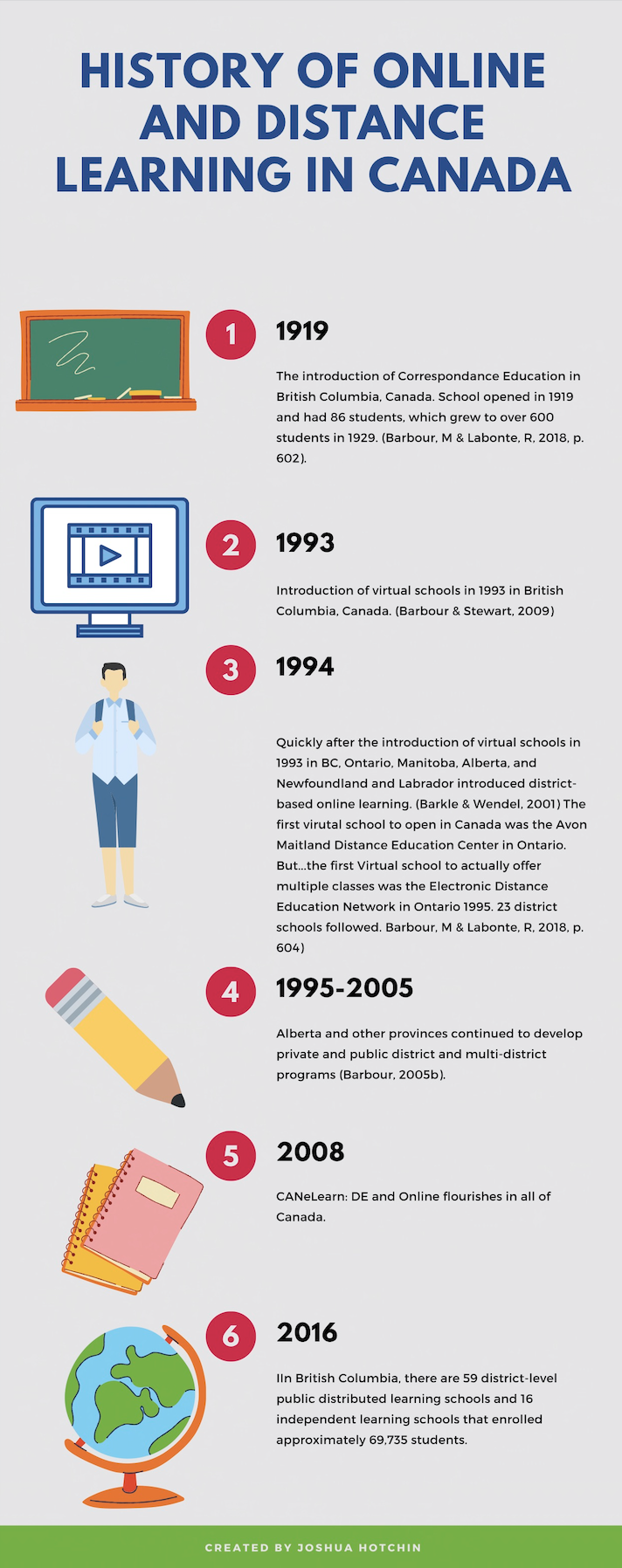Blog post #2:
After reading this week’s material and interacting with my learning pod friends, I feel that the topic of online and open learning is misunderstood, and most criticisms are caused by fear and ignorance.
Due to our knowledge of the history and theoretical foundations of today’s teaching practices and pedagogies, my learning pod was able to have an intriguing conversation around this week’s resources. We did a group annotation of three of the suggested readings (a small portion is shown below).
 After the web meeting with Dr. Barbour, Dr. LaBonte, and Dr. Roberts, my main takeaway is that your approach to teaching is the essential aspect of ensuring student learning, regardless of the format or setting. Another part of the meeting that stood out to me was the respect that a teacher must show for the authority under which they are teaching. This subject was pointed out by Dr. Labonte when he discussed the bureaucratic restraints under which teachers work. I am thankful for being led to a resource that outlines a set of standards for online teaching that our speakers were part of creating.
After the web meeting with Dr. Barbour, Dr. LaBonte, and Dr. Roberts, my main takeaway is that your approach to teaching is the essential aspect of ensuring student learning, regardless of the format or setting. Another part of the meeting that stood out to me was the respect that a teacher must show for the authority under which they are teaching. This subject was pointed out by Dr. Labonte when he discussed the bureaucratic restraints under which teachers work. I am thankful for being led to a resource that outlines a set of standards for online teaching that our speakers were part of creating.
The topic of online learning was further discussed in this week’s reading, written by Tony Bates. In his article, he states his fear that “it could be argued that past learning theories are made irrelevant by digital technologies” to which he disagrees. I agree with Tony’s disagreement with this argument as I think that learning theories are just as relevant when using digital technologies, if not more so.
Here are some insightful quotes and a beautifully informative infographic from my pod members:
- “an understanding and appreciation of different learning theories is key – they can be useful in different situations and contexts. It’s important not to dismiss certain theories outright. be open to learning about them!” Leona Ngan.
- “Digital technology is helping the teacher to teach and interact with their students,” Kirby Jarvis.
- “We are social beings, who learn better when learning is social, active and interactive,” Kirby Jarvis.
- ” This highlights the importance of social presence/social interaction in online learning,” Leona Ngan.

References:
Bates, Tony. Learning theories and online learning in Online Learning and Distance Education Resources. July 2020. https://www.tonybates.ca/2014/07/29/learning-theories-and-online-learning

July 15, 2020 at 7:37 pm
Another wonderful blog post Timm! I thought that the infographic you created at the beginning of the post was a great way to introduce your post – providing a summary of your previous knowledge and experiences regarding this topic whilst also noting key aspects of online teaching was an effective and visual way to demonstrate your thinking. I shared the same past perceptions of online learning as an “alternative approach to school” reserved for students with special circumstances. After reading through your post, I have gained a stronger understanding in how open & distributed learning have evolved and slowly begun to shift into more widely recognized learning models! I totally agree with your comment about the importance of one’s teaching approach as an “essential aspect of ensuring student learning, regardless of the format or setting.” Your pedagogy is really key – it’s the primary thing that should be guiding you in designing and structuring learning.
What I love most about your post is your integration of information from members of our learning pod! It’s a great way to showcase all of our learning (and how they relate and build off each other) as well as create a sense of community and collaboration (which are also important parts of open and online learning)!
I really enjoyed reading your post this week and can’t wait to see what you write about in topic three! 🙂
July 16, 2020 at 12:02 am
Hey Timm!
To start HOLY! I thought you had taken this feature image straight out of an education magazine! Very impressive technological artwork skills on your part! As discussed before in our annotations, I grew up in the K-12 system feeling the same way about online and distributed learning as being an “alternative” route or a “last chance” for students trying to get their diploma. It is an interesting point you make about “being surprised by the lack of digital technology used in elementary schools” because I can see where you are coming from. With the unlimited knowledge and resources, online tools, and technology give us, it seems like a privileged waste not using them in our schools. I remember your comment in our annotations about Bates saying that past learning theories are being made irrelevant by digital technology. I couldn’t help but agree with your statement about one, disagreeing with the comment and two, arguing the fact that there is an element of fear that is involved in this thought.
Great blog as usual and, I couldn’t’ help but feel flattered looking at my name in your post! It is amazing how much more we can learn when we work together (not to be cheesy but legit).